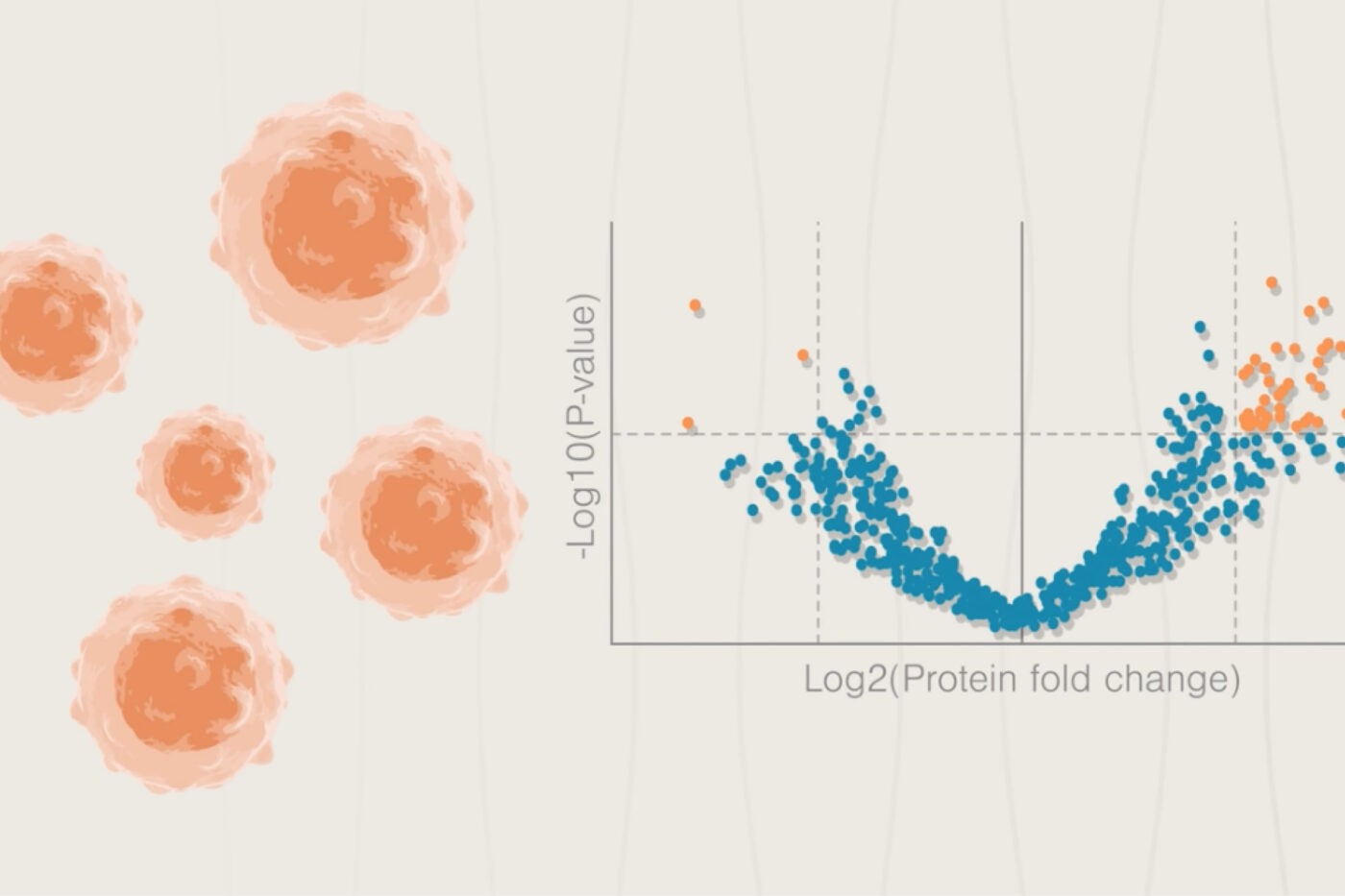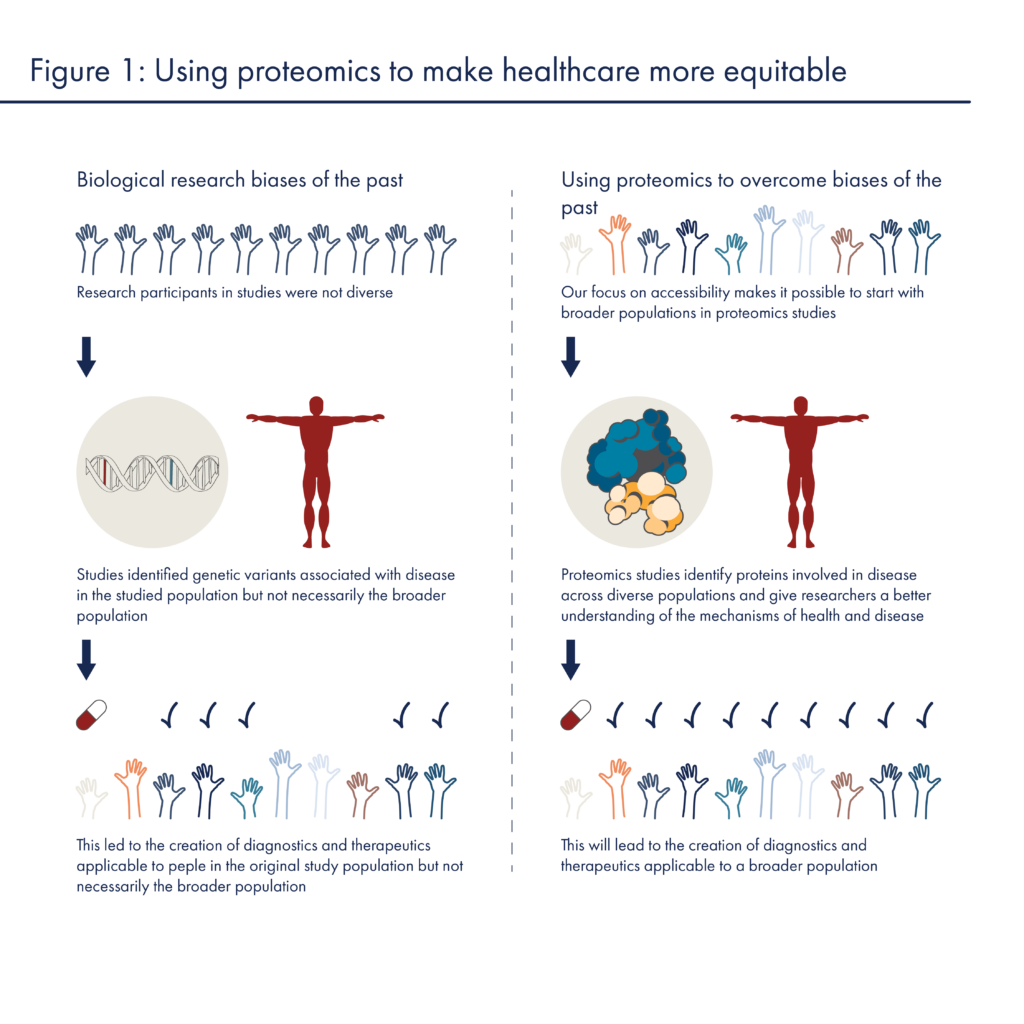
Targeting healthcare disparities through the proteomics revolution (Part 2)

Tyler Ford
February 9, 2023
An opportunity to address health disparities through next generation proteomics
Bias in biological research and discovery has led to the creation of medicines and diagnostics that benefit a privileged few (see part one of this series). Recognizing healthcare disparities caused by a lack of diversity in research samples and researchers themselves, many institutes have developed processes aimed at improving representation in biological and clinical studies (See Wang et al 2022 for a salient example in genomics).
These efforts should be lauded, but we in the proteomics field can make equity a priority from the start. At Nautilus, we are determined to create a proteomics platform that is developed by and ubiquitously accessible to researchers across the globe. We hope to make it clear to the users of our technology that it is critical to:
- Ensure that people from underrepresented backgrounds are included in the design of proteomics studies from their inception.
- Ensure the results of these studies are accessible to the participants involved in them with clear explanations of what the results do and do not mean.
- Ensure that study participants’ biological data is protected and that participants are explicitly aware of how their data will be used.
- Ensure that applications resulting from proteomic studies are accessible to the participants in those studies.
- Create a biomedical and healthcare workforce that includes people from underrepresented backgrounds at all levels.
(For more on these principles, see Jooma et al 2019)
Addressing healthcare disparities through proteomics and the proteomics field
Next-generation proteomics technologies are poised to achieve these principles of health equity. Unlike genomics discoveries of the past, proteomics discoveries should be inherently more applicable to diverse populations because they look directly at the molecular causes of health and disease—proteins. Proteomics technologies can provide insights into cellular functions and malfunctions that drive disease across diverse populations instead of discovering mutations that may only be associated with disease in in subpopulations of people.
Beyond the inherent benefits of proteomics technologies, those of us working in proteomics can grow this field with an intentional focus on diversity. At Nautilus, we understand that true innovation comes from not only diverse scientific perspectives, but also from people with diverse personal histories. We hope that the Nautilus Proteome Analysis Platform can help solve existential problems in healthcare and beyond and, to achieve this, we know our platform must be used and developed by people who approach problems from vastly different backgrounds. Our technology can only enable solutions to problems in infectious disease, food security, climate change, and more if it is developed by and accessible to people from all walks of life.
A personalized proteomics future with measurements specific to each and every person
We’re designing the Nautilus Proteome Analysis platform to be accessible to researchers all over the world and it is our goal to one day give all individuals access to truly personalized measurements of their own, highly diverse determinants of health. We hope that this and similar platforms will eliminate some of the disparities that have accrued through years of underrepresentation. This goal requires that we all make a clear and conscious effort to prevent the biases of the past from resurfacing in proteomics. We are committed to making more equitable, proteomics-powered future a reality for all.
MORE ARTICLES

